Your donation will support the student journalists of Wiregrass Ranch High School. Your contribution will allow us to purchase equipment and cover our annual website hosting costs.
Wiregrass dominates at Science Fair
Wiregrass students claim International Science Fair spots for the third year in a row.
March 3, 2023
Eleven Wiregrass students are moving on to the State Science Fair and two are headed to the Regeneron International Science and Engineering Fair (ISEF) after placing during the Pasco Regional Science and Engineering Fair on Jan. 28. Over the past decade, 16 Wiregrass students have been selected for the International Science Fair; the next closest school in Pasco county has sent five students, further illustrating the preeminence of the Wiregrass program.
ISEF is the world’s largest pre-college STEM fair with judging done in person; the competition exists in all 50 states, the District of Columbia, and more than 75 countries, regions, and territories. More than 1,800 students compete for nearly six million dollars in awards, prizes, and scholarships.
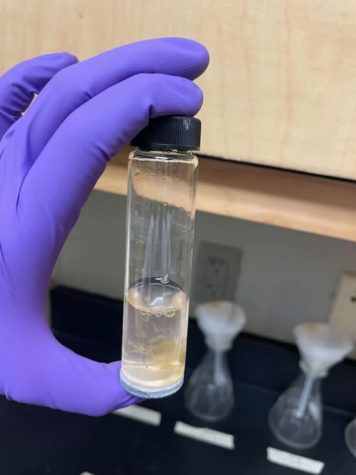
Students found out about the science fair through the Advanced Placement (AP) Capstone program offered at Wiregrass Ranch. Classes like AP Research, AP Seminar, and Experimental Science allowed students to develop year-long research projects they could enter into the fair, taught by science teacher, Branden Anglin, who oversees their research.
“Mr. Anglin is the reason Wiregrass is constantly successful in the science fair because it wouldn’t be possible without his support,” International Science Fair nominee, Caroline McHale admitted.
The fair is an incredible opportunity for students to research things they’re passionate about and present their research to a panel of judges. According to Pasco County Schools, “through the scientific research process, students take ownership of their interests, explore pressing issues and problems that our world faces every day, and stretch their creativity in an attempt to design and implement powerful solutions.”
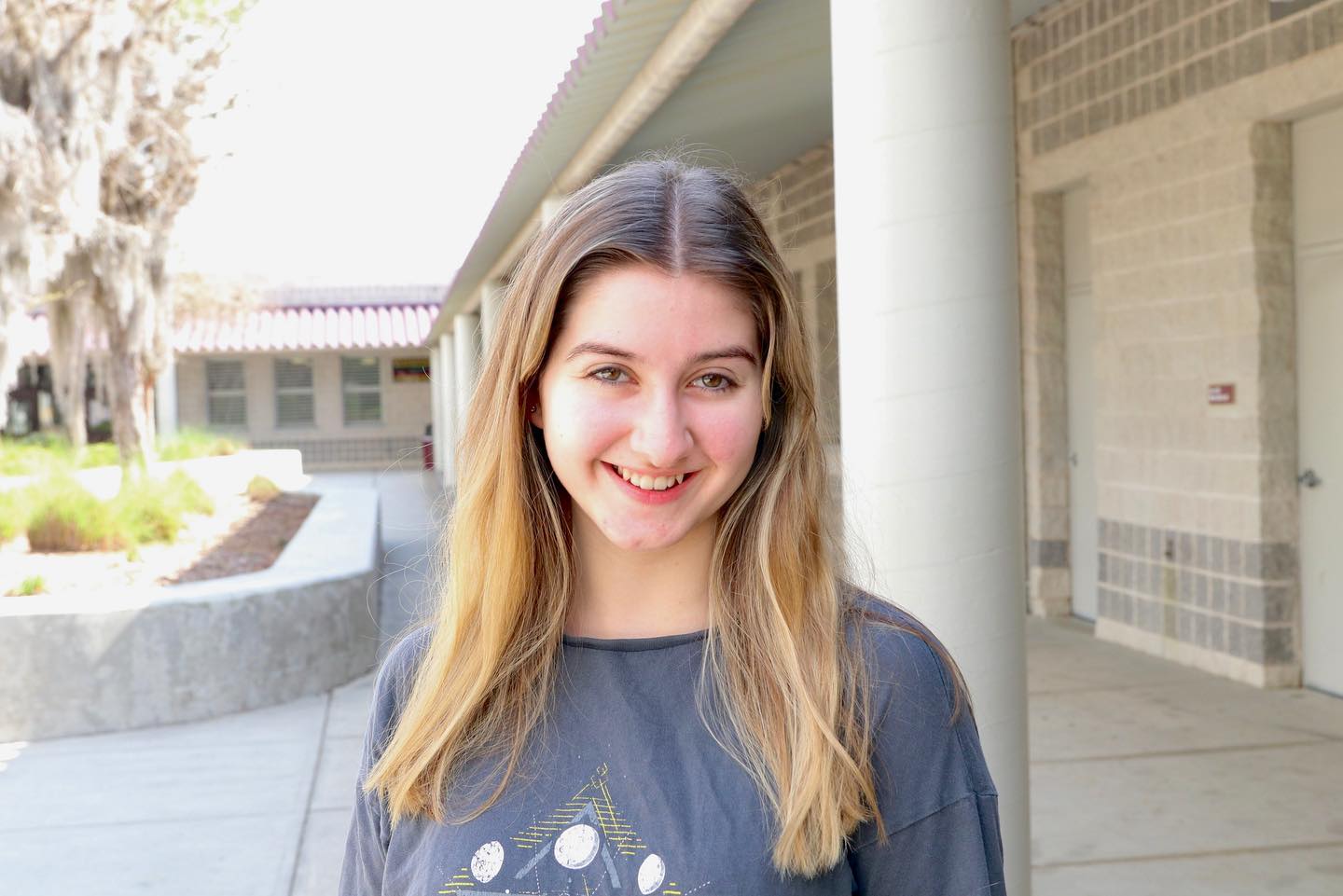
A picture of one of the two finalists for the international science fair: senior Caroline McHale.
Science Fair International finalist: Caroline McHale
Senior Caroline McHale will be moving on to the International Science Fair due to her remarkable work in her project: “An Innovative Approach to Promoting Lignin Biosynthesis in S. lycopersicum Using Sound Waves.” McHale also earned a NASA Earth System Award and placed first in plant sciences at the Regional Science Fair.
McHale feels confident heading into the state and international competition because of her strong support system.
“Mr. Anglin makes sure we have everything we need and explains the processes and what it takes to move forward in the competition,” McHale stated.
McHale worked for extraordinarily long hours preparing her project.
“The process of collecting data took me two full days, but the process of research is never done,” she conveyed. “There is always more to discover and edits to be made.”
Regardless of her long preparation, she still faced many obstacles. During her experiment, McHale ordered a tool called an autoclave which she would need for data collection, yet a printer arrived in the mail instead. However, McHale found a solution: a pressure cooker.
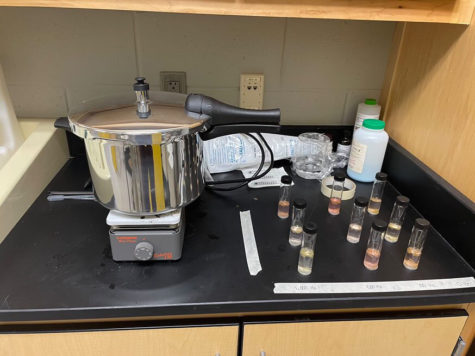
“I had to find a more accessible tool that would do the same thing for my procedure,” McHale explained.
Despite this mishap, McHale maintained a positive attitude and viewed this as a learning curve.
“Research is full of obstacles; the most important thing is making justifiable choices in response to those obstacles and maintaining the validity of the research,” McHale commented.
Every project is created with the student’s passions and the needs of the real world in mind.
“With my research in plant physiology and pathology, I was able to find a potential mechanism to increasing plants resistance to disease by safely promoting processes that already naturally occur,” McHale voices. “I chose my topic because it is an issue that, if not solved, can do extreme damage to our environment.
McHale’s goal was to showcase how soundwaves could be utilized as a cheaper, safer, and more efficient treatment for the prevention of crop diseases.
“The most important impact of this is the efficacy, it is using sound to initiate an immune response in plants that is naturally occurring to build up its defenses before the disease has the chance to penetrate the cell and take its nutrients,” McHale explained.
Currently, McHale is preparing for the upcoming state and international competitions.
“Moving on to International is an amazing opportunity, it honestly still feels surreal being chosen.” McHale voices. “I’ve known about international science fair for the past couple of years and hearing about it, I never thought it would be a possibility that I get to go myself.”
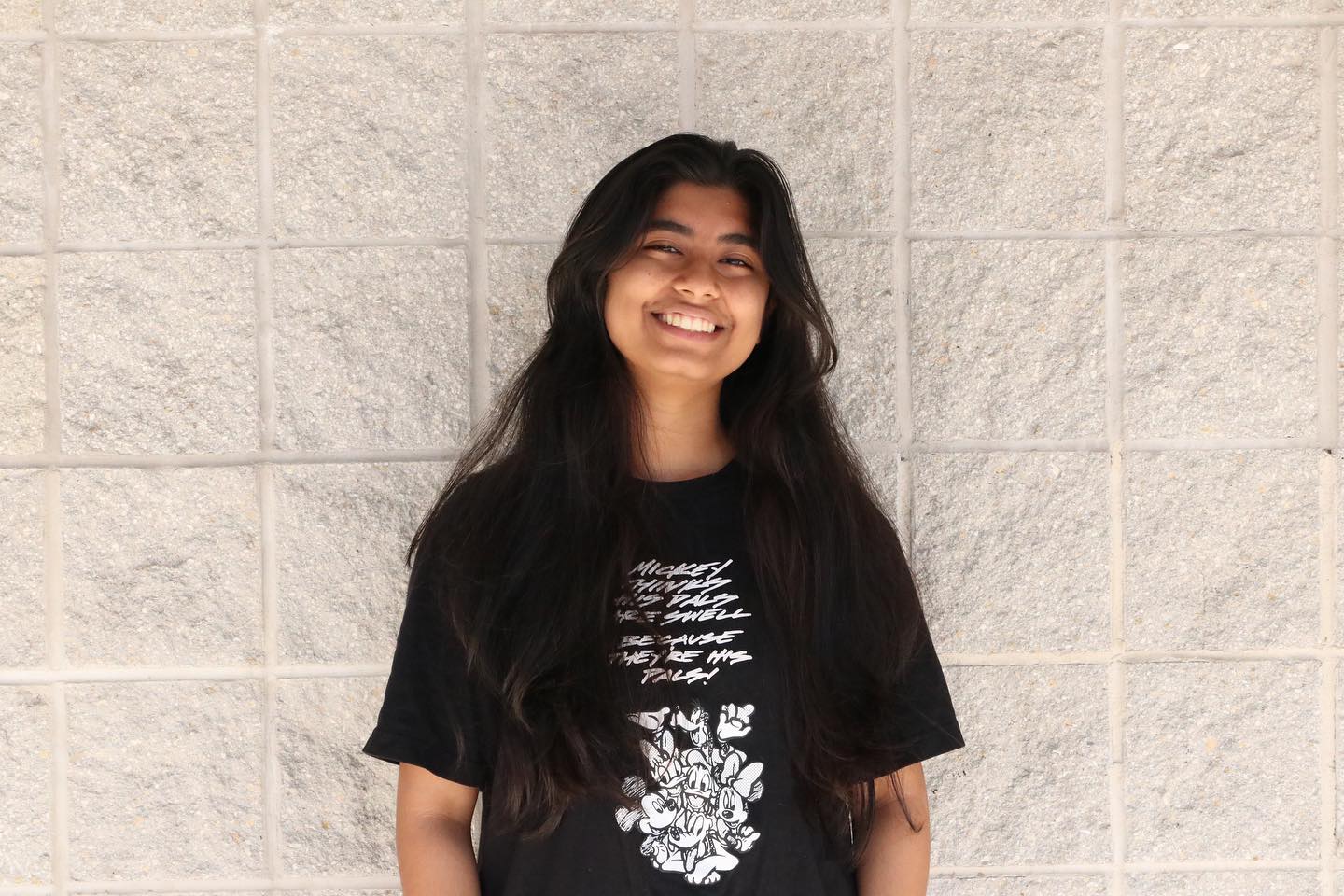
A picture of one of the two finalists for the international science fair: junior Meghna Manjith.
Science Fair International finalist: Meghna Manjith
Junior Meghna Manjith claimed one of the few coveted seats at the International Science Fair with her project: “Preventing Surgical Site Infections: Designing a Novel Post-Surgical Treatment Using Silver Nitrate and Ayurvedic Extracts in Combination with DNA Sequence Analysis.” She placed first in the microbiology category of the competition. Similarly, she was awarded the Vitro Biology Award and the US Air Force Award during the Regional Pasco Science and Engineering Showcase Awards Gala.
Moving on in her journey to the state and international competitions, Manjith feels prepared thanks to AP Capstone and Experimental Science teacher, Mr. Anglin.
“Mr. Anglin has prepared me in this journey by really helping me fine tune details of my project and guiding me in just structuring my project in general.” Manjith expresses. “He has been really committed to helping me and all of my peers for our projects and I appreciate his help so much.”
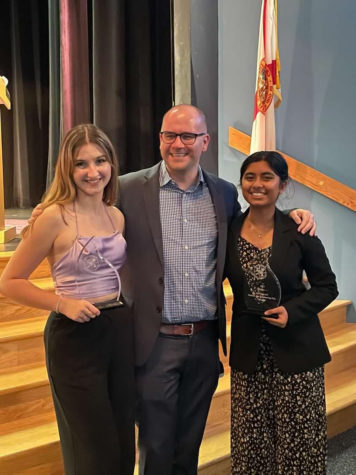
Manjith, intrigued by how common surgical site infections are within hospitals, designed an experiment centered around preventing these infections through post-surgical treatment in addition to using code to analyze patterns within the bacterial strains.
“I tried to design a treatment that is both inexpensive and effective in preventing bacterial growth from occurring,” Manjith explained.
Manjith’s preparation for her experiment began in August of 2022 and was completed towards the end of January 2023. Her research is still ongoing, and even though she completed most of her project, she faced numerous drawbacks during data collection.
“I accidentally ordered the wrong type [of gel] which would have led to no bacterial growth at all, completely leading to insignificant results,” Manjith admitted.
Luckily, Amazon Prime Delivery helped ensure she received the correct gel needed for her data collection. With her experiment results, Manjith aims to give people more access to the medicine they need after surgery.
“My project aims to prevent surgical site infections in the homeless urban population.” Manjith conveys. “I believe that creating this inexpensive and effective treatment can help to reduce economic burden costs for the patient and the hospital and allow for more people to have access to the medication they need to stay healthy post-surgery.”
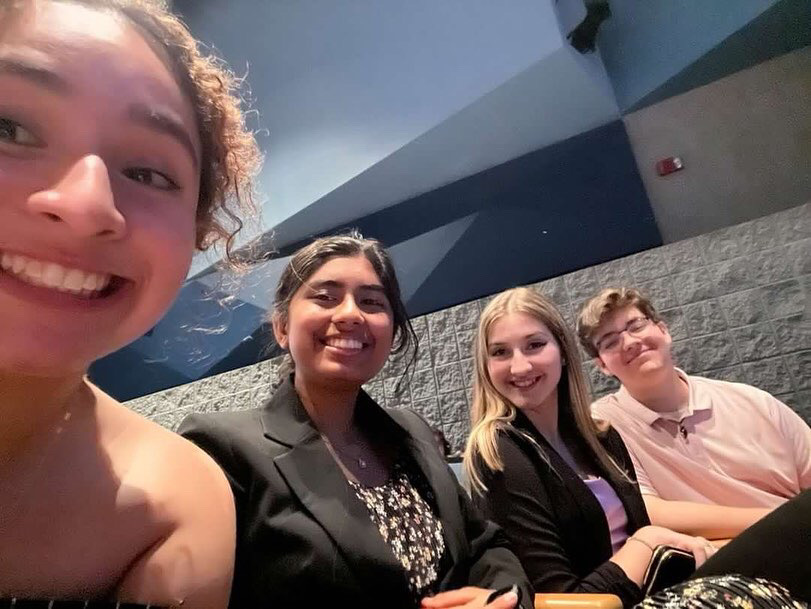
State finalists at the Regional Pasco County Science and Engineering Awards Showcase. Depicted from left to right: Gianna Ginesin, Meghna Manjith, Caroline McHale, Andrew Lambert.
Wiregrass State finalists: 11 moving on
Although only two Wiregrass students are moving on to the international level, 11 students are moving forward to the State competition; this is nearly one-third of the 30 students who competed in Regionals. The State Fair will be held April 4-6 in Lakeland, Florida with more than 900 students competing. Carly Bronson, Kate Niehoff, Dikembai Woodfill, Ryan Harris, Syd Norris, Andrew Lambert, Gavin Sawall, Gianna Ginesin, Christian Rios, and of course Meghna Manjith, as well as Caroline McHale, will be moving on to Florida’s 68th State Science and Engineering Fair.
Each of these students put hours upon hours of hard work, dedication, and passion into their projects. The students formed a connection with each other through this long and tedious process and worked together often.
“All the science fair kids help each other whether it’s designing our boards or discussing the logical progression of our projects,” senior and state finalist Gianna Ginesin stated.
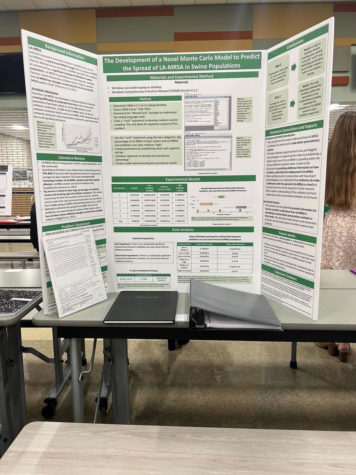
The regional competition had many students anxiously anticipating the outcome of their hard work.
“The atmosphere was honestly an entire experience because you could feel the nervousness from the students and the excitement from the judges to learn about what you did,” Syd Norris said.
Many of the students had specific motivations behind their research projects, whether it was to improve a problem in the world or to broaden research in a specific field. Similarly to the rest of his classmates, Sawall took a real-world problem that he wanted solved and did something about it. Sawall’s goal was to create something that would help people in compromised situations, similar to something his family experienced at home.
“I wanted to optimize the response time of a motion detection system I created to monitor hospital patient movements,” Sawall detailed, after his father struggled with movement at home post-treatment for a leg injury. “I wanted to design a system that would ease the pressure on my mother and potentially save my father’s life.”
Best of luck to everyone competing in the state competition to all our Wiregrass competitions.